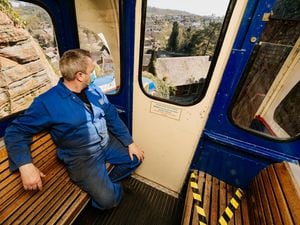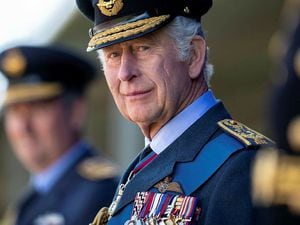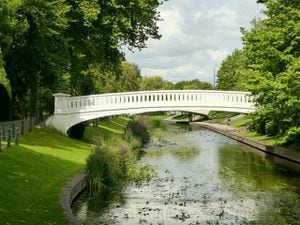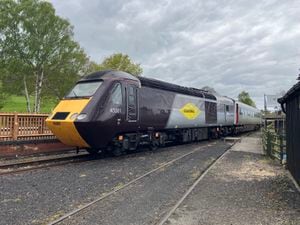Bridgnorth Cliff Railway part replaced after 77 years’ service
Maintenance work has been completed on the brakes of England's oldest and steepest inland funicular railway based in Shropshire.

A seal used on the main braking system of Bridgnorth Cliff Railway lasted about 77 years before needing a replacement, which was undertaken by engineers over the last two weeks.
The railway's chairman Dr Malvern Tipping said the specialist parts were almost impossible to come by new and spares were purchased whenever available.
He said: "It is an amazing testament to the original engineering that the original brake piston seals seemingly saw 77 years' service without having given any trouble at all.
"Once we realised that they had seen better days, we were able to replace them immediately, because the cliff railway always stocks plenty of spare parts.

"Our team was able to attend the work over a couple of Sunday mornings. The cliff railway's drivers now report how much smoother the braking system is. This should be reflected in a smoother arrival of carriages at the stations."
Dr Tipping added that the region was home to "excellent" engineering companies which were able to craft parts when desperately needed.
"The work was able to be completed so quickly because we had retained necessary spare parts," Dr Tipping said.
"These are not things which can be bought off the shelf, so we have a policy of purchasing parts whenever we see them available and having more specialist parts manufactured bespoke for us so that we can place them in our stores.
"Fortunately, the West Midlands region still has some excellent engineering companies which always step up to the plate for us when asked to do so."

Cliff railway staff first reported that the brakes to the winding drums in the winding room were coming on too sharply and then sticking about three weeks ago.
Investigations from engineer Barry Evans ascertained that one of the seals to the main braking system had started to leak.
General manager Karl Braden worked with Barry to set about replacing all the seals, which appeared to have been those fitted in 1944.
On completion of the works, staff stated how pleased they were with the smoother brakes, enabling them to be dialled at a lower setting.





